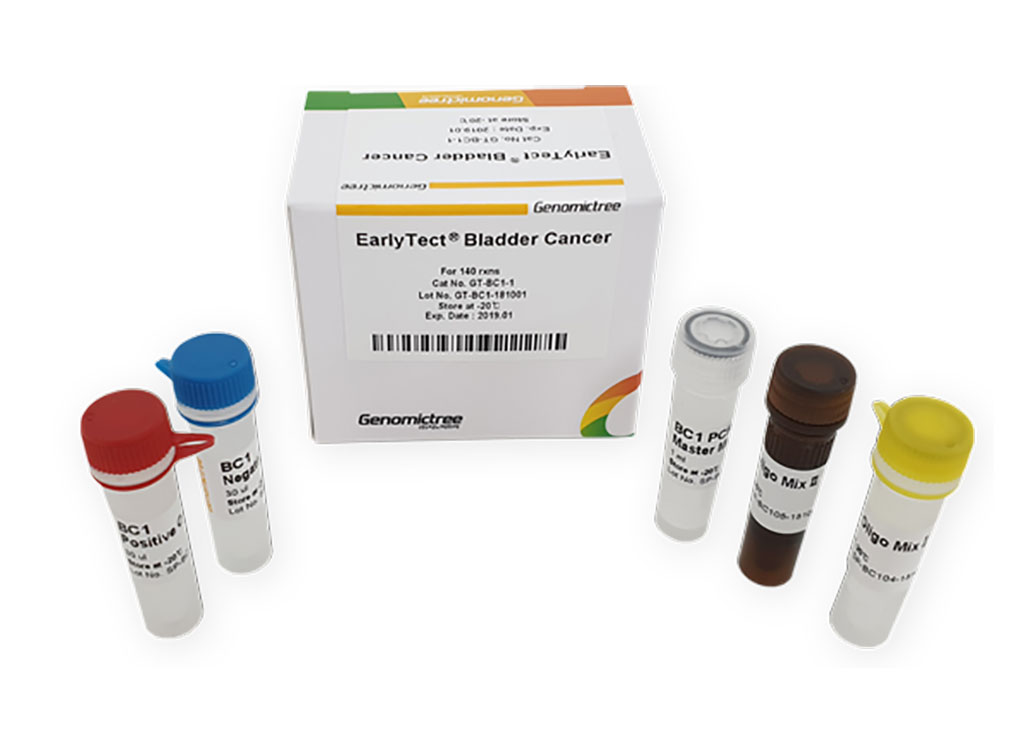Simple Noninvasive Test Could Pave Way for Breakthrough in Early Diagnosis of Bladder Cancer
Posted on 16 Aug 2023
Bladder cancer ranks as the sixth most prevalent cancer globally. While its five-year survival rate exceeds 80% if detected early, late-stage diagnosis often requires bladder removal, carries a higher recurrence risk, and sees a steep drop in survival rates. This makes bladder cancer one of the costliest cancers in terms of treatment and care. Blood in the urine, or hematuria, is a primary symptom of bladder cancer and is the reason behind 20% of all visits to urologists. Although around 85% of those with bladder cancer display hematuria, it's also common in adults for various other reasons. Only 5-20% of hematuria cases result in a bladder cancer diagnosis. The prevalent method of initial diagnosis is through cystoscopy and imaging, but these procedures can be intrusive, costly, and at times, miss early-stage bladder cancers. Hence, there's a pressing need for a more accurate and less invasive diagnostic method for early-stage bladder cancer in hematuria patients.
Researchers at Genomictree, Inc. (Daejeon, South Korea) and Chungnam National University College of Medicine (Daejeon, South Korea) have now developed a new diagnostic tool that could mark a breakthrough in early diagnosis of bladder cancer in patients with hematuria, reducing unnecessary invasive cystoscopies and the disease’s financial burden. The researchers have honed in on a biomarker known as aberrant PENK methylation (mePENK), previously linked strongly to bladder cancer. The first of two independent studies focused on developing a highly sensitive urine DNA test using mePENK methylation and test its efficacy in detecting bladder cancer presence in hematuria patients. With data from 175 bladder cancer patients and 143 with non-cancerous hematuria, the test demonstrated an impressive 86.9% sensitivity and 91.6% specificity in distinguishing bladder cancer from non-malignant hematuria cases.

The second study involving 366 hematuria patients awaiting cystoscopy compared the mePENK test outcomes with the results of cystoscopies and histological tissue examinations. The test boasted an 84.2% overall sensitivity in detecting all bladder cancer stages from the sample. Moreover, its specificity stood at 95.7%, and it had an exceptional 92.3% sensitivity rate for detecting advanced bladder cancers. This innovative test could potentially revolutionize early bladder cancer diagnosis, making it more efficient and cost-effective.
“In this study, we used a test based on a single biomarker, mePENK, to detect primary bladder cancer in hematuria patients, and compared its clinical performance with tests that combine multiple biomarkers,” said Sungwhan An, Ph.D., CEO and Scientific Director, Genomictree. “Surprisingly, our findings revealed that the mePENK test was equal to or even superior to these multiple biomarker tests. Furthermore, the non-invasive nature of using a urine sample and the simplified test procedure offer advantages such as a shorter turnaround time for sample processing and efficient and accurate analysis of results.”
“The present study showcases a breakthrough in diagnosing bladder cancer through a simple and effective diagnostic test that eliminates the need for unnecessary cystoscopy procedures,” added Sungwhan An. “The results demonstrate high sensitivity and accuracy in detecting bladder cancer. Using void urine as a sample offers significant advantages, ensuring easy accessibility to diagnostic opportunities for patients. The test has the potential to significantly reduce bladder cancer–related deaths and medical expenses. To implement the test in clinical practice larger-scale prospective clinical trials are needed, and we are actively pursuing that goal.”
Related Links:
Genomictree, Inc.
Chungnam National University College of Medicine













